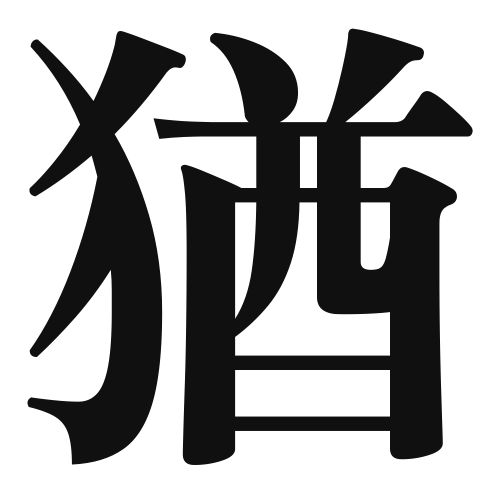1. Overview of Meaning
The kanji “猶” (yuu) generally means “still,” “yet,” or “also.” It conveys a sense of continuation or similarity in context.
2. Formation and Radical
Formation of the Kanji: The kanji “猶” is a phonetic-ideographic character (形声文字). It combines the radical for “dog” (犭) with the phonetic component “尤,” which suggests its pronunciation and contributes to its meaning related to animals or nature.
Radical: The radical of “猶” is 犭, which is associated with animals, particularly dogs.
3. Examples of Usage
Common Words and Phrases: Some common words that include “猶” are “猶予” (yuu yo – delay, postponement) and “猶且” (yuu ka – moreover, furthermore).
Example Sentences in Daily Conversation:
- この問題は猶解決していない。 (This problem is still unresolved.)
- 猶、彼は来ると言っていた。 (He said he would come yet.)
4. Synonyms and Antonyms
Similar Kanji: A similar kanji is “尚” (shou), which also means “still” or “furthermore,” but it often carries a more formal or literary tone.
Opposite Kanji: An antonym is “終” (shuu), which means “end” or “finish,” indicating a conclusion rather than continuation.
5. Cultural and Historical Background
Relation to Japanese Culture: The kanji “猶” is often used in formal writing and literature, reflecting a sense of continuity or persistence, which is valued in Japanese culture.
Proverbs and Idioms: One common expression is “猶予の時間” (yuu yo no jikan – time for delay), which emphasizes the importance of taking time before making decisions.
